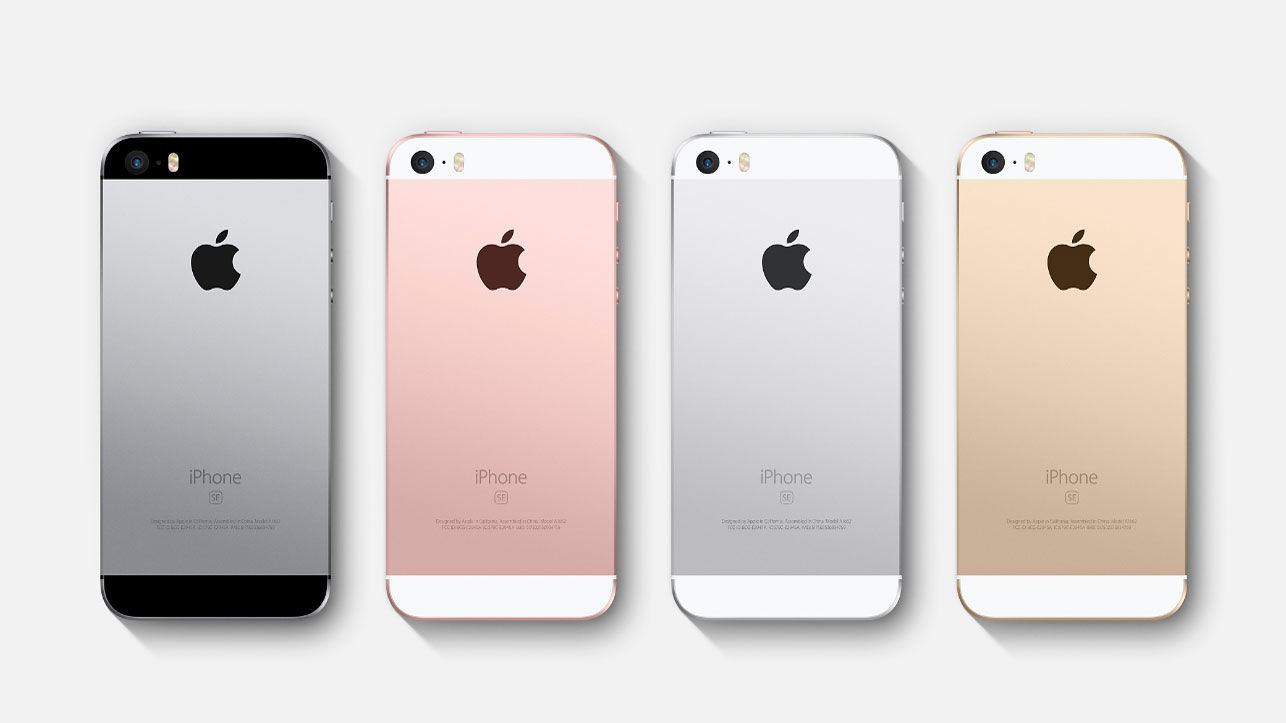Hooray! The 16GB iPhone is dead!
Apple’s spring clean has blown away a few annoying cobwebs

Sign up for breaking news, reviews, opinion, top tech deals, and more.
You are now subscribed
Your newsletter sign-up was successful
As a tech writer, new Apple product launches are among our most stressful time, with what feels like the entire internet desperate for any nugget of info on the new products as soon as your aching fingers can digitally whizz it to them.
So on a day like today, when Apple launches an under-the-radar suite of changes to its tablet and phone line up, it can be hard to pick out what’s actually worth shouting about - but there’s one huge bit of good news in there for Apple fans.
With the refresh of the iPhone SE, Apple’s ‘lowest’ iPhone in the range, there are no more 16GB models of iPad or iPhone left to buy.
Yes, that does mean the 'cheap' options are gone: with the iPad mini 2 biting the bullet today as part of Apple’s spring clean, the lowest-cost tablet is now $329 / £339 / AU$469 (that's the new iPad), and that’s hardly cheap.
And the iPhone SE starts at $399 / £379 / AU$479, which, again, isn’t inexpensive… but at 32GB minimum, it’s far more acceptable (and it hasn't risen in price).
Look, this isn’t a debate about whether Apple’s products are worth it (yes, you can get Android phones and tablets with a microSD card slot for far less), but about making sure those that want an Apple device, to the exclusion of all other brands, are getting better value for money.
A look around during an average commute in the UK shows that nearly everyone is clutching an iPhone, and some are still using the iPhone 5C, enticed by the opportunity to own an iPhone at the cheapest level.
Sign up for breaking news, reviews, opinion, top tech deals, and more.
That model was offered in 8GB - which was far too low - and even 16GB is too little with the plethora of high-power apps, photo storage and system updates most of us need.
So by Apple losing the 16GB model in both its tablet and and phone ranges, users should at least find they don’t run into low-storage warnings very often.
Lost in the breeze
It might seem confusing what Apple has done with its tablet today, given there doesn’t seem to be much of a change at all with the new iPad - but it’s good news for the less-than-discerning buyer, a demographic Apple needs to keep happy to maintain its high consumer satisfaction scores.
It might be sad to see the iPad Air range go, but Apple’s clearly been trying to lose the ‘Air’ element of its products for years - there’s a thinner and lighter version of the MacBook Air... but that’s now simply the MacBook.
So by having the iPad Air in the pantheon of Apple tablets on the shelves, it was confusing for someone looking to buy a new digital slate.
What did the name 'Air' represent? Was that better than the iPad Pro? How did it stack up against the iPad mini when there was no iPad Air mini?
And let’s be honest here: Apple’s been canny by dropping the name. In terms of change, there’s very little: a brighter screen and a slightly thicker chassis are the only obvious alterations, with the internals all pretty much identical.
But to the average consumer that bops down to their local retailer at Christmas, they’ll see the ‘new’ iPad on the shelves for a lower cost than any other tablet from Apple - it’s a new launch without actually much changing, something only Apple can really manage to pull off.
So while today’s announcement from Apple might seem slight, it’s a tidy up of its range that will actually have fairly wide-ranging benefits to the consumer - and if that means the end of low storage warning messages appearing, then every daughter, niece or grandson who’s ever been roped in for family tech support can rejoice too.

Gareth has been part of the consumer technology world in a career spanning three decades. He started life as a staff writer on the fledgling TechRadar, and has grew with the site (primarily as phones, tablets and wearables editor) until becoming Global Editor in Chief in 2018. Gareth has written over 4,000 articles for TechRadar, has contributed expert insight to a number of other publications, chaired panels on zeitgeist technologies, presented at the Gadget Show Live as well as representing the brand on TV and radio for multiple channels including Sky, BBC, ITV and Al-Jazeera. Passionate about fitness, he can bore anyone rigid about stress management, sleep tracking, heart rate variance as well as bemoaning something about the latest iPhone, Galaxy or OLED TV.